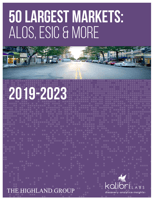Extended-stay room revenues in traditional hotels are 21% higher than in extended-stay hotels,...
In the News
The OTA battlefield: Legislation to loyalty
The struggle to persuade guests to book direct instead of through an online travel agency is ongoing, but hoteliers have a number of factors working in their favor.
Hotel brands fight valiantly against the online travel agencies in an attempt to sway consumers to book direct through their proprietary channels.
It’s going to take an industrywide, two-pronged attack, however. On one front, the industry must lobby for legislation to prevent third-party booking sites from misrepresenting themselves as the brand channel.
Fortunately, that’s already happening. The American Hotel & Lodging Association’s ongoing strategic offense targets beltway influencers. Recently, the AHLA successfully campaigned the Federal Trade Commission, which found and charged a third-party reservation center for deceiving consumers into believing they’re booking directly with a hotel. The ruling of the FTC bans the misrepresentation of a hotel’s identity, now requiring clear disclosure of third-party OTA status and a compliance report.
Consumers are speaking up. According to Research & Polling, 88% of consumers desire transparency in hotel booking. Media Day NY & DC has found that 72% of consumers want the government to enforce laws on these third-party affiliates. The AHLA has partnered with several consumer protection advocate groups, such as the Better Business Bureau, to educate consumers on how to avoid misleading and fraudulent sites. The AHLA is applauded for its efforts and results. It is off to a good start.
Simultaneously, several of the major hotel companies have taken the OTAs head on, launching national advertising and media campaigns educating the consumer on the benefits of booking direct with a lowest-price guarantee. Hilton, Marriott, Hyatt and IHG kicked off book-direct efforts in 2016.
In addition to the lowest-price guarantee, the brands have turned to their elite loyalty programs and conceived a slew of exclusive guest perks for their reward members in an effort to sidestep the OTAs and increase their direct bookings. These programs appear to be making headwinds.
Loyalty programs do work
A recent J.D. Power survey suggests loyalty programs do create a bond between a guest and a brand. Nearly half (47%) of the more than 4,600 hotel rewards program members polled said they had booked a hotel room within the past 12 months through the brand.
Last year, a study by Kalibri Labs found between 40% and 60% of reservations in the upper-midscale, upscale and upper-upscale segments came through loyalty programs in 2016. What’s more, brands grew rewards memberships by between 30% and 40%.
These loyalty programs increase direct bookings because the brands now use the one powerful tool they have over the OTAs: delivering a superior guest experience. By delivering first-rate services exclusively to rewards members, brands have the opportunity to pry consumers away from the OTAs.
Although the efforts of the brands and industry as a whole have had some success, the brands still lag behind the OTAs in bookings, according to Hitwise. The online market trend tracker counted reservations made via the OTAs and the brands’ platforms between May 2016 and May 2017 and found the OTAs grabbed 58.3% of the bookings compared to 41.7% reserved through brand channels.




